The Consequences of Physically Punishing Children
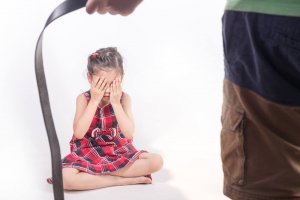
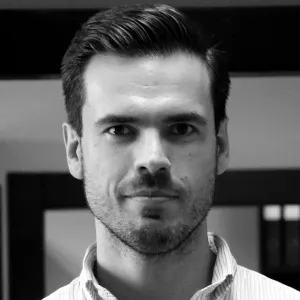
Written and verified by the psychologist Bernardo Peña
Many have used physical punishment for a very long time to discipline children. However, we now know that this method isn’t effective. On the contrary, physically punishing children can cause clear damage for years on the boys and girls that it’s been used on.
In spite of this, many parents still consider physical punishment to be the best way to educate or correct bad behaviors in their children. It typically includes spanking, pinching, hair pulling, or even heavier beatings. What’s more disturbing is that cases of reported physical punishment are on the rise.
Physically Punishing or Physically Abusing?
There’s a thin line that separates physical punishment from abuse. Both are characterized by violent behavior against a child or teenager in an effort to regain control over them.
The first can be defined as the desire to create a painful memory or experience for the child without causing injury, so that they won’t repeat whatever bad behavior they had before. The second typically inflicts physical injuries, often intentional. Physical abuse can be a result of excessive physical punishment.
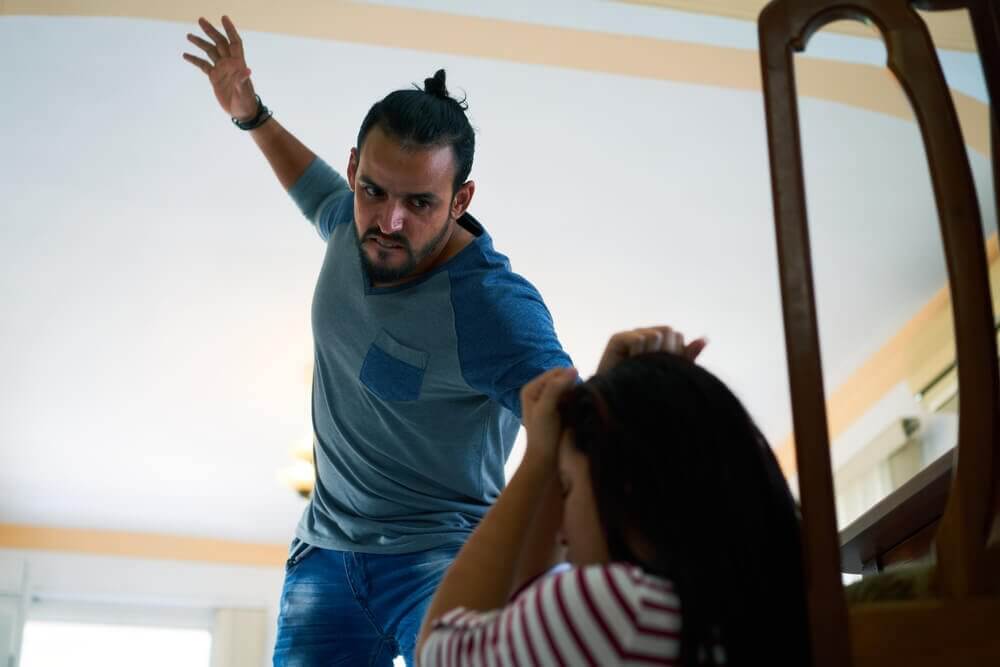
However, this type of punishment also affects a child’s psyche. It causes a series of mental and emotional health problems at a young age.
Read also: Subtle Forms of Abuse
The Consequences of Physically Punishing Children
Despite multiple campaigns to end physical punishment, it’s still the most commonly and even socially accepted form of violence against children. Those who defend it will argue that it causes the child to immediately behave, but it’s not an effective strategy to teach long term rules or norms of behavior.
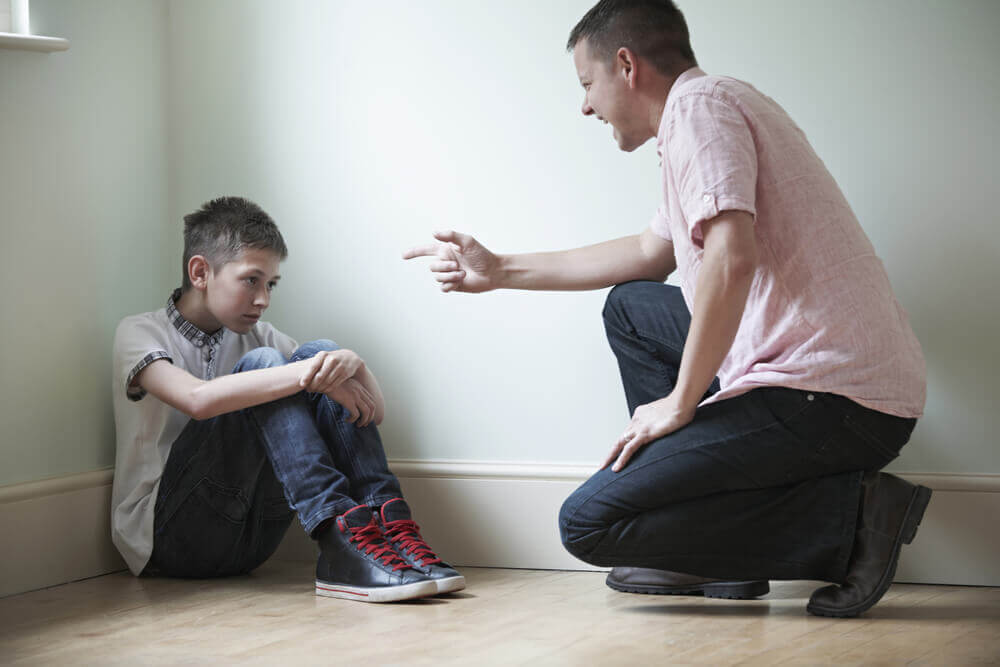
Below, we’ll list some of the most clear and negative consequences of this type of punishment on children:
- It harms their self-esteem. It makes them prone to insecurity, fear, and social withdrawal.
- Physical punishment limits a child’s autonomy. Instead, it teaches them to be blindly submissive.
- It impairs their emotional development, leading them toward feelings of pain, sadness, and anxiety
- Physical punishment creates a barrier of communication between parents and children that can last through adulthood.
- It can trigger feelings of abandonment, loneliness, and a lack of affection.
- It impedes the correct development of essential social skills for conflict resolution.
- Physical punishment leads to aggressive or violent behavior against friends and classmates
- It interferes with a child’s learning processes. Physically punishing children lowers their creativity and the development of feelings and emotional intelligence.
- Physical punishment deteriorates a child’s mental health and cognitive capacity.
- It teaches them to see violence as an appropriate method to resolve conflict. Thus, many children whose parents physically punished them turn to violence themselves. In addition, it typically leads them to believe as adults that physical punishment is a good thing, and that they should use this method with their own children
- It causes behavioral problems in society at large (destruction of property, theft, civil disobedience, vandalism).
Other Consequences of Physical Punishment
The mental effects are typically proportionate to the type of punishment the parents use. However, research shows that the victims of this type of violence often become abusers themselves.
This doesn’t manifest directly as a tendency to inflict pain on others. Rather, it’s because they don’t know any other way to discipline. As they grow up, they’ll be faced with conflicts that they often resolve using the only tool they know: violence.
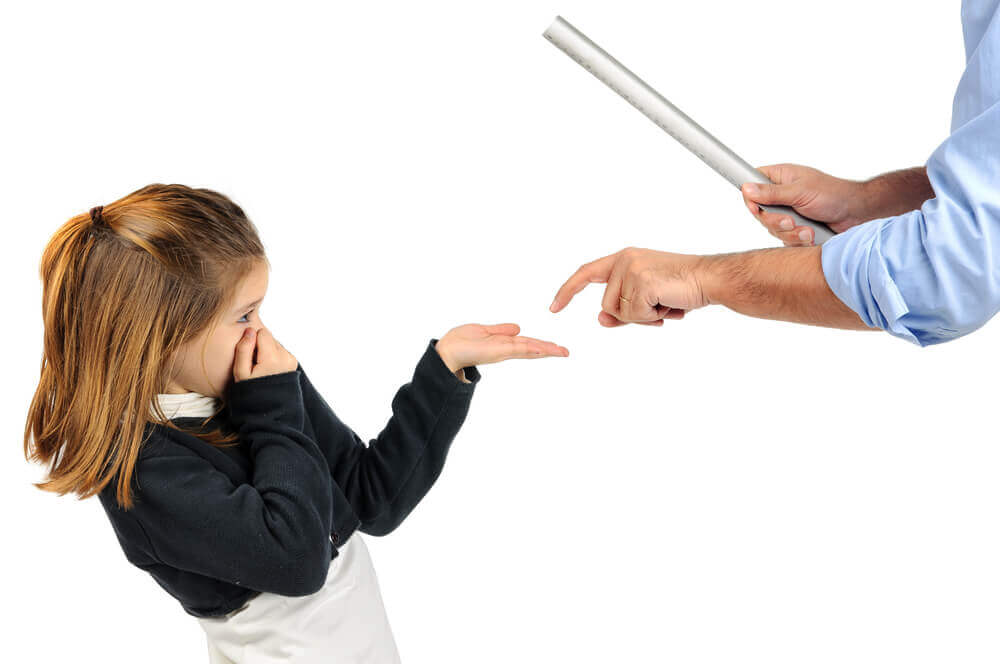
Similarly, studies show that physical punishment a leading reason some children begin using and abusing substances, such as drugs and alcohol.
Other consequences affect their personality, mood, and sleep quality. This could be due to increased levels of cortisol (the stress hormone), which can lead to neuro-biological imbalances.
You might be interested in reading: 6 Childhood Emotional Wounds
Final Considerations
To conclude, understand that physically punishing children interferes with their emotional and psychological development. Because of this, you should seek other methods to improve your relationships with your children.
Positive techniques include reinforcing good behavior, ignoring certain negative behaviors, or calling the child’s attention to identify their bad attitude. Teach them using love and patience, not violence and fear.
All cited sources were thoroughly reviewed by our team to ensure their quality, reliability, currency, and validity. The bibliography of this article was considered reliable and of academic or scientific accuracy.
-
Barcelata, B., & Álvarez, A. (2005). Patrones De Interacción Familiar De Madres Y Padres Generadores De Violencia Y Maltrato Infantil. Acta Colombiana de Psicología.
-
Carreño, C. I., & Rey, A. (2010). Reflexiones en torno a la comprensión del maltrato infantil * Towards Understanding Child Abuse. Universitas Psychologica.
-
Benavides Delgado, J., & Miranda, S. (2007). Actitud crítica hacia el castigo físico en niños víctimas de maltrato infantil. Universitas Psychologica.
This text is provided for informational purposes only and does not replace consultation with a professional. If in doubt, consult your specialist.








